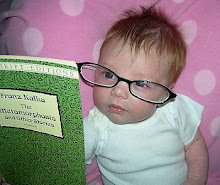For nerds: The equation used to govern the forgetting curve is R = e ^ (-t / S ), where R is retention, t is time, and S is the relative strength of memory.
For non-nerds: Check out the graph.

In either case, one can observe the graph to be decreasing. What does this mean exactly? It means that a timer is started once you acquire a new piece of information. As time passes, you can recall only a certain percentage of the material in question. Common sense right?
Ok, lets put this theory to more practical terms. You are sitting in class (make it a class of your choice if you will, mine would be Physics), and your professor announces you have an exam in 3 weeks. Now you are thinking to yourself, “Ok, I have plenty of time to study!” Fast forward to the night before the test, if you will. Now you are starting to study, pulling the dreaded all night-er. Keep in mind, that once you re-study the material, the curve starts over, giving you only a 70-75% recollection of the material. This number may also be effected by sleep deprivation and if you happened to skip breakfast. If you did no studying whatsoever, you would have a 14-15% recollection of the material.
Imagine an alternate situation if you will. You are sitting in class, with the same announcement and the same amount of time until the test. Once your hour-long lecture is over, you force your brain to recall the information you just learned. Doing this within 15 minutes of the lecture will alter the S variable in our Ebbinghaus function, altering the curve. Three weeks later, with no studying at all, this gives you a 30% recollection, which is already double that of not studying at all
In short, reviewing your lecture notes within 15 minutes of the end of class can increase your recollection of the material by altering your Ebbinghaus curve.
What other ways can you alter YOUR “S” value? One of these techniques is called “Spaced Repetition”, which will be reviewed later this week and posted at the beginning of next week. Happy Studying!


No comments:
Post a Comment